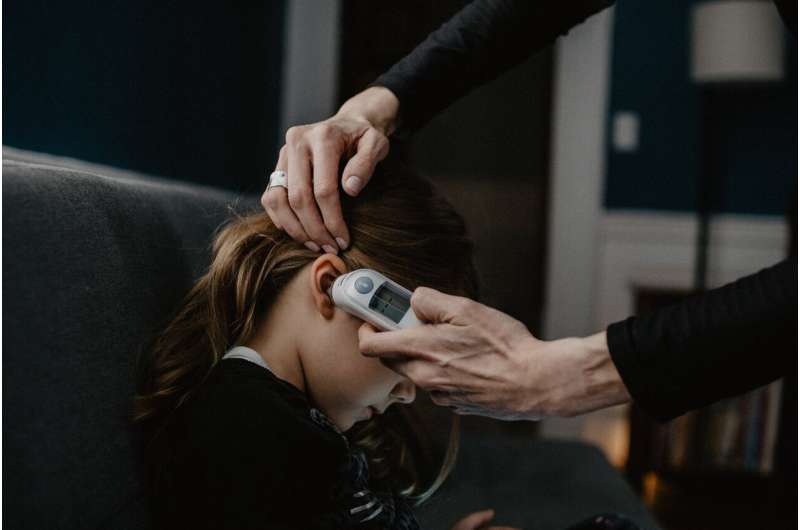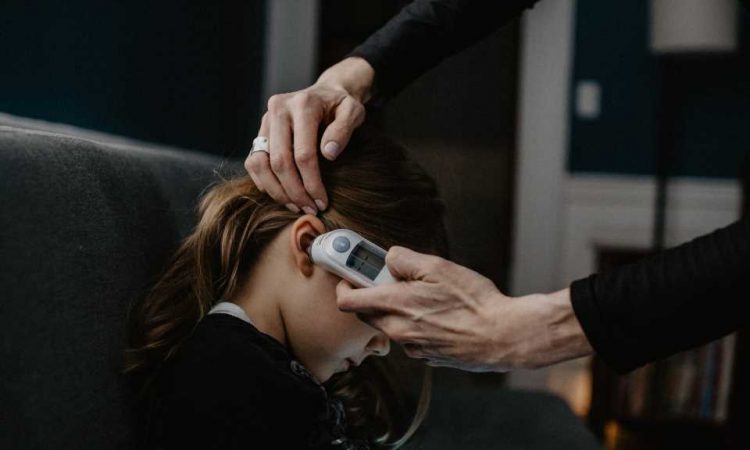
Following COVID-19 infection, there is significant new onset morbidity in children, adolescents and adults across 13 distinct diagnosis and symptom complexes, according to a new study publishing November 10 in the open access journal PLOS Medicine by Martin Roessler of Technische Universität Dresden, Germany, and colleagues.
Studies have established that some people infected with COVID-19 suffer long-term health problems following the acute phase of the disease. However, evidence on post-acute (post-COVID-19) syndrome is still limited, especially for children and adolescents.
In the new study, using a health care dataset covering nearly half the German population and spanning all of 2019 and 2020, researchers identified patients with a polymerase chain reaction (PCR)-confirmed diagnosis of COVID-19.
They then compared the occurrence of pre-specified diagnoses, entered into the medical record at least three months post-infection, in these patients (11,950 children and adolescent and 145,184 adults) to a control cohort of more than 750,000 individuals with matched age, sex and pre-existing medical conditions, without PCR-confirmed COVID-19.
Overall, children and adolescents who had been infected with COVID-19 were 30% more likely than controls to have documented health problems beginning three months or more after infection (436.91 vs 335.98 per 1,000 person-years, IRR=1.30, 95% CI=1.25–1.35, p<0.01). Adults with COVID-19 were 33% more likely than controls to have health problems (615.82 vs 464.15 per 1,000 person-years, IRR=1.33, 95% CI=1.31–1.34, p<0.01).
Among children and adolescents, rates of malaise/fatigue/exhaustion, cough and throat/chest pain were the most strongly associated with a prior COVID-19 infection, but rates of headache, fever, abdominal pain, anxiety disorder and depression were also increased. Among adults, smell/taste disturbance, fever, and dyspnea (or difficulty breathing) were most strongly associated with COVID-19 infection but also more common were cough, throat and chest pain, hair loss, fatigue, exhaustion and headache.
“The results of the present study indicate that post-COVID-19 syndrome cannot be dismissed among children and adolescents,” the authors say.
“We found that COVID-19 diagnosis was associated with higher long-term demand for health care services as reflected in outpatient and inpatient diagnoses of a broad set of outcomes more than three months after confirmed SARS-CoV-2 infection. While children and adolescents appear to be less affected than adults, these findings are statistically significant for all age groups.”
Source: Read Full Article
